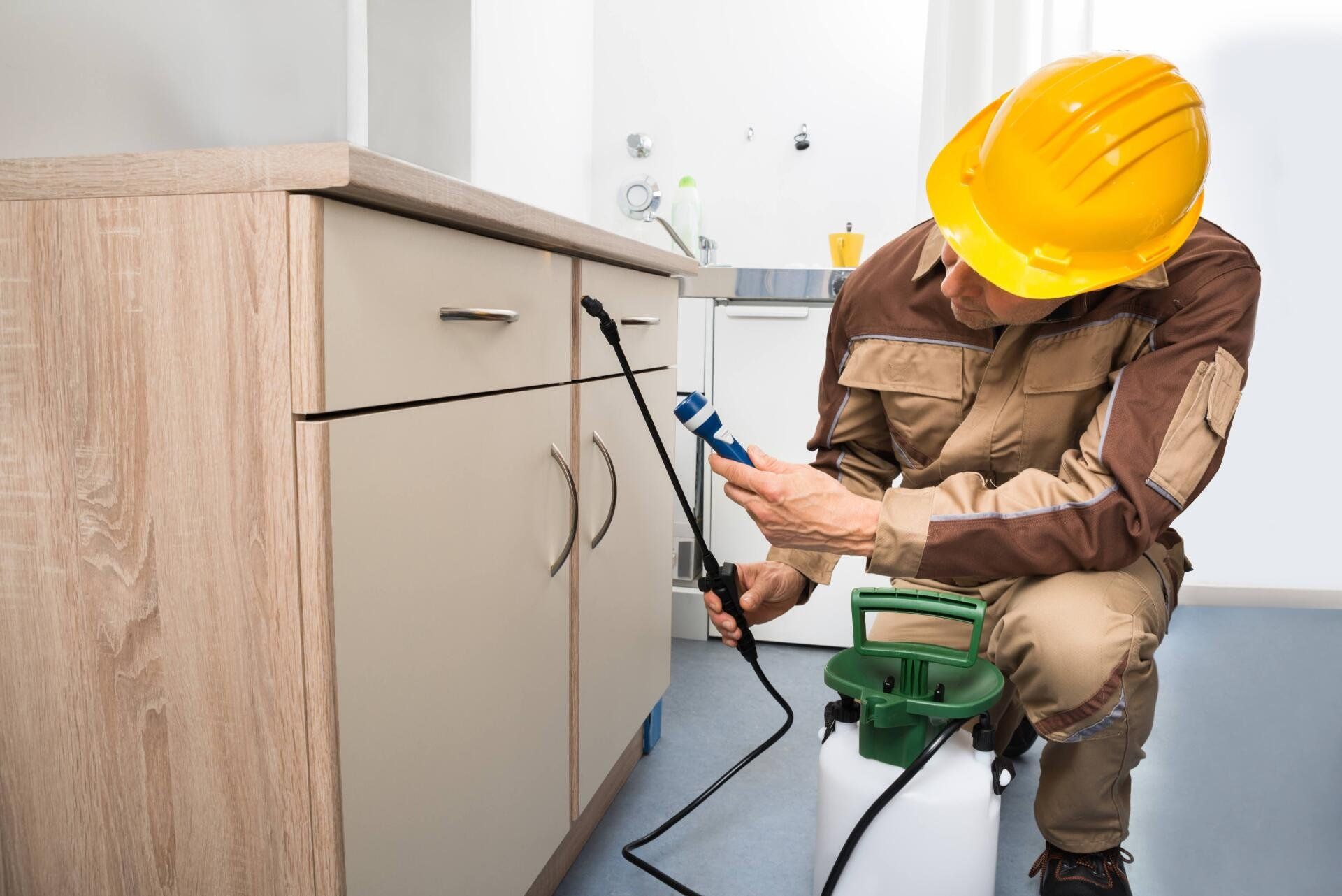Top-rated Pest Control Clovis Services: Your Assurance
Top-rated Pest Control Clovis Services: Your Assurance
Blog Article
Understanding the Numerous Methods to Bug Control: A Comprehensive Guide

Natural Bug Control Approaches
Employing environment-friendly strategies such as buddy planting and biological parasite control is essential for effectively taking care of bugs in farming setups. Buddy planting involves growing various plants in closeness to prevent bugs, enhance nutrient uptake, and improve total plant health and wellness.
Biological pest control entails presenting all-natural killers or virus to control pest populations. Ladybugs, as an example, prey on aphids, controlling their numbers without the need for chemical pesticides. Another example is the use of Bacillus thuringiensis (Bt), a germs that targets certain insect bugs while being safe to people, animals, and beneficial bugs.
These environmentally friendly approaches not only minimize the dependence on synthetic pesticides yet likewise aid protect biodiversity and dirt health. By integrating natural bug control strategies into farming practices, farmers can attain sustainable insect monitoring while reducing adverse influence on the setting.

Chemical Bug Control Solutions
Along with natural bug control approaches, the utilization of chemical insect control remedies plays a considerable function in properly managing pest populations in farming settings. Chemical pest control options are created to target specific pests that may trigger considerable damage to crops. These solutions often consist of synthetic chemicals that are made to remove parasites swiftly and effectively.
One of the essential benefits of chemical pest control services is their efficiency in managing bug invasions on a large range. Farmers can use these remedies making use of numerous approaches such as splashing, airing out, or seed treatment to safeguard their crops from damaging bugs, weeds, and illness. Furthermore, chemical bug control services are fairly easy to apply and can provide rapid outcomes, aiding farmers secure their yields and reduce economic losses.
Nevertheless, it is vital to utilize chemical pest control remedies carefully to reduce possible unfavorable effect on the setting, non-target organisms, and human wellness. Appropriate application techniques, adherence to security guidelines, and normal monitoring are critical to make sure the responsible usage of chemical pest control remedies in agricultural techniques.
Biological Parasite Control Approaches
Biological parasite control approaches utilize natural killers or pathogens to handle parasite populations in farming settings successfully. This method uses a environmentally friendly and lasting service to pest monitoring, minimizing the reliance on artificial chemicals and lessening harm to the atmosphere. One usual biological control strategy is the intro of all-natural adversaries, such as ladybugs or parasitic wasps, to target certain parasites. These predators eat the parasites, helping to manage their populaces normally - pest control clovis.
Another organic control approach includes using virus like germs, viruses, or fungis to infect and eliminate bugs. Generally, biological parasite control methods offer a lasting and targeted service to pest management in farming.
Integrated Insect Management (IPM)
Integrated Bug Management (IPM) is a comprehensive strategy that integrates numerous insect control strategies to effectively take care of and lessen pest populations in farming systems. IPM concentrates on long-term avoidance of pests via a combination of organic, social, physical, and chemical control methods. By incorporating these various approaches, IPM aims to reduce dependence on chemical pesticides, reduce ecological impact, and advertise sustainable bug management techniques.
One secret aspect of IPM is the usage of biological controls such as all-natural predators, parasites, and virus to regulate pest populaces. This method harnesses the power of nature to preserve an equilibrium between insects and their natural opponents without triggering injury to the setting.
Additionally, IPM involves cultural techniques like crop sanitation, habitat, and rotation adjustment to create undesirable problems for parasites and interrupt their life process. Physical controls such as traps, composts, and barriers are additionally made use of to avoid bug problems.
Physical and mechanical Bug Control Strategies
Utilizing non-chemical methods, such as mechanical and physical parasite control strategies, is a critical facet of comprehensive pest administration techniques, building upon the structure of Integrated Parasite Management's holistic method. Mechanical insect control entails making use of physical obstacles or traps to prevent parasites from accessing and damaging crops or you could try this out frameworks. This technique can include strategies like setting up screens on home windows, utilizing row covers in farming, or utilizing sticky traps to website link capture bugs.
Physical insect control methods, on the various other hand, concentrate on directly removing insects through physical methods. Using warm treatments to get rid of bed insects or vacuuming up parasites like ants or spiders can be reliable ways to take care of invasions without the usage of chemicals. By incorporating these mechanical and physical pest control methods right into an Integrated Insect Monitoring plan, individuals and specialists can minimize reliance on chemicals while still efficiently lessening and managing pest populaces damage.
Conclusion

In enhancement to all-natural insect control methods, the application of chemical bug control options plays a significant duty in properly handling pest populations in farming atmospheres.One of the key benefits of chemical insect control solutions is their efficiency in controlling pest problems on a big scale.Integrated Parasite Administration (IPM) is a comprehensive approach that incorporates different pest control methods to successfully manage and decrease pest populations in farming systems.Utilizing non-chemical approaches, such as mechanical and physical pest control methods, is an important aspect of thorough insect monitoring techniques, constructing upon the structure of about his Integrated Parasite Monitoring's holistic approach. By integrating these physical and mechanical parasite control methods right into an Integrated Bug Administration plan, people and experts can minimize dependence on pesticides while still successfully taking care of pest populations and lessening damage.
Report this page